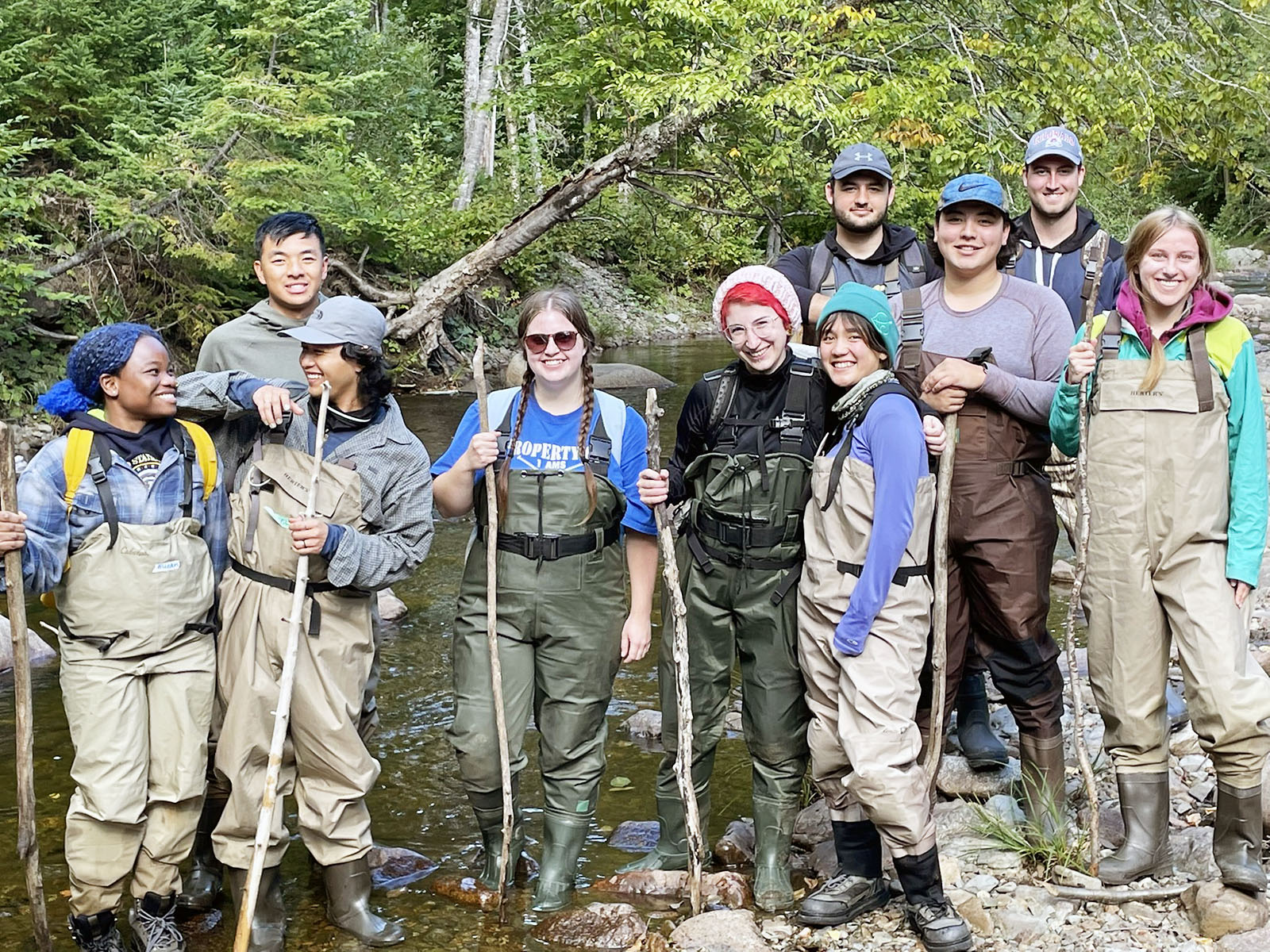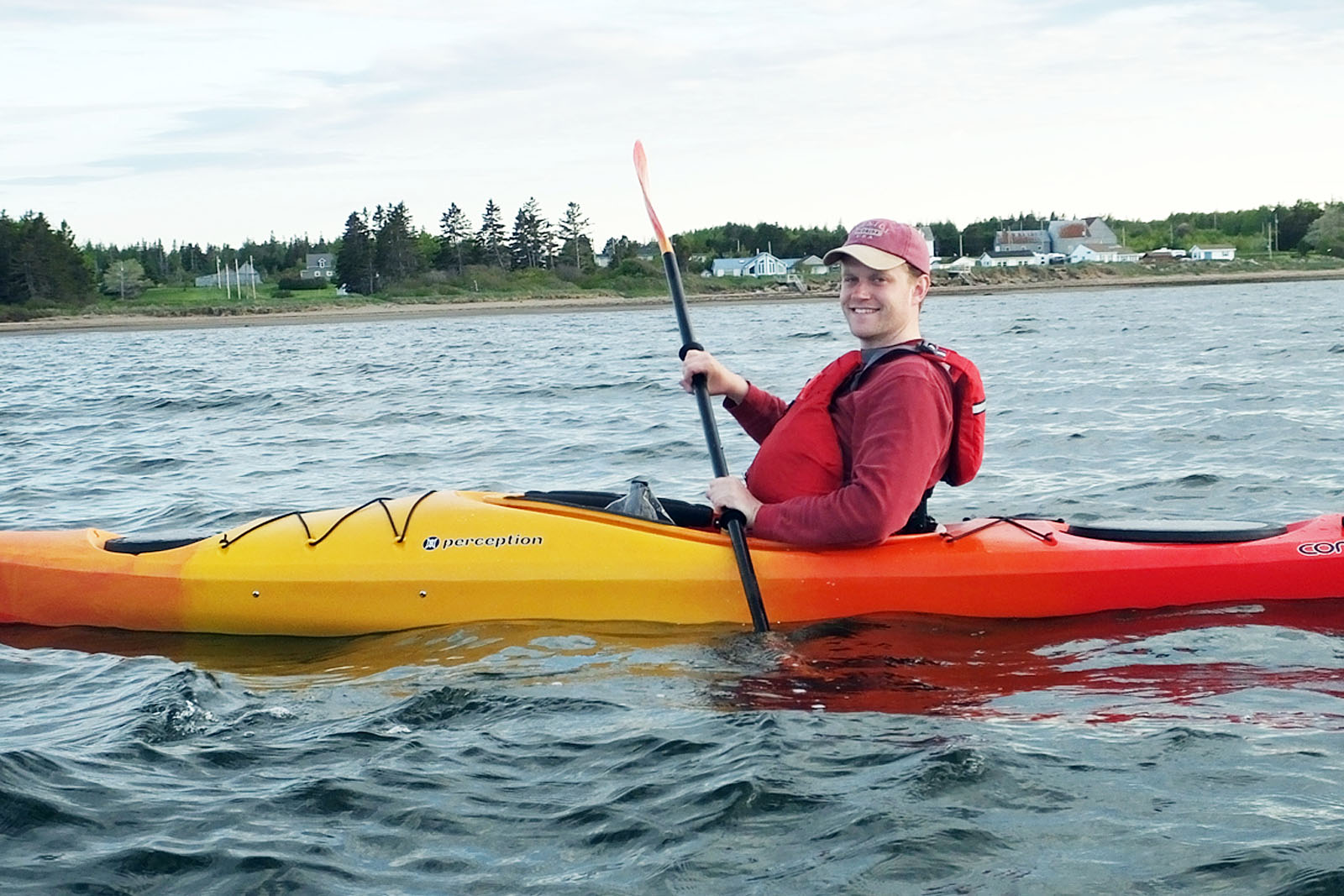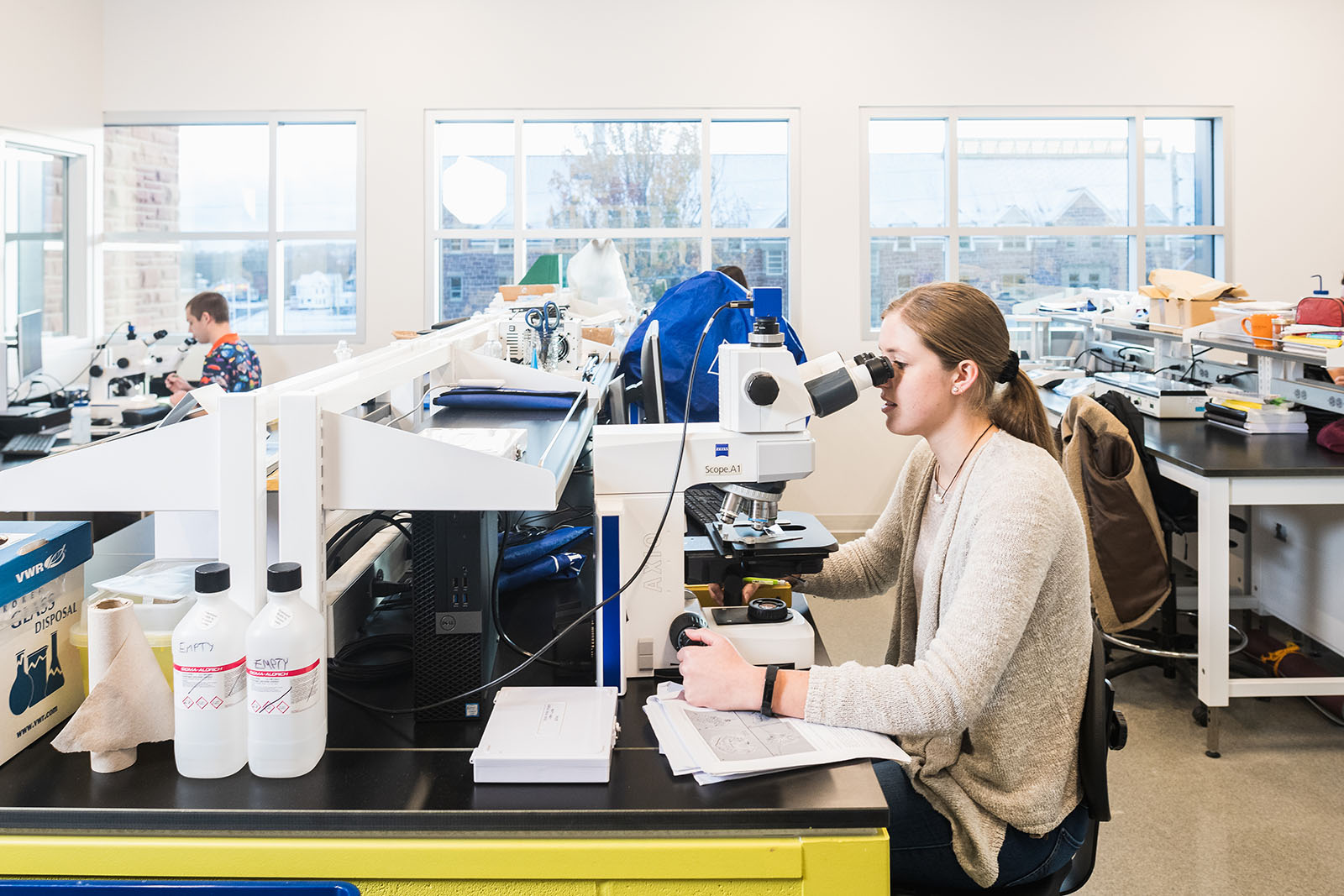Overview
Environmental Science is an ideal discipline if you have both a strong interest in science and a concern for the environment. This interdisciplinary program is science intensive and provides you with the foundation necessary to understand environmental issues from many different perspectives.
At a Glance
Curriculum
At Mount Allison, Environmental Science students study issues like:
- the mechanics of weather and climate
- the biological consequences of climate change
- the impacts of environmental degradation
- the effects of climate on the distribution of animals and plants
- the impact of environmental change on freshwater systems
In upper years, you will compliment your major with an in-depth concentration of courses to provide you with a scientific specialty when you graduate.
Concentrations include:
- aquatic environments
- environmental chemistry
- environmental modelling
- environmental monitoring and management
You also have the opportunity to investigate issues you are passionate about through independent research (honours).
Environmental Science is available as:
- BSc major (69 credits)
- BSc honours (78 credits)
- A minor in any degree (24 credits)
Not sure about the difference between a major, a minor, an honours, and a certificate?

Related programs:
GENS 1401 — The Physical Environment
This course introduces the general principles of Physical Geography and the Environment, emphasizing the physical world at a variety of spatial and temporal scales. This course introduces the four fundamental spheres of Physical Geography: the hydrosphere, lithosphere, atmosphere and biosphere. It examines basic processes in the physical environment such as the seasons, layers of the atmosphere, the earth's energy budget and interactions with atmospheric processes. It also investigates weather and its interplay within the hydrological cycle, the fundamentals of climatology, the three basic rock types, tectonic activity and weathering of the earth's surface. (Format: Lecture 3 Hours, Laboratory 1.5 Hours)
GENS 2431 — Data Analysis
GENS 2441 — Geographic Information Systems
This course surveys several aspects of traditional cartography, examines one or more Geographic Information Systems, and explores the role of maps in conveying geographic information. (Format: Lecture/Laboratory 3 Hours)
GENS 2881 — Traditional Ecological Knowledge
This course investigates the ways in which Indigenous scientific knowledge and ways of knowing and Western scientific knowledge and ways of knowing complement one another. It discusses Indigenous research methodologies and considerations. Students also learn from Mi'kmaq and/or Wolastoqiyik Elder(s).
GENS 3431 — Fundy's Megatidal Biogeography Science
This course explores the physical evolution of the Bay of Fundy's landscape through geologic time. It examines the development of terrestrial, intertidal, and marine ecosystems, and considers the anthropogenic influences that have transformed this dynamic environment. It pays close attention to the interaction between the climate, geology, tides, rivers, forests, and biodiversity, through direct observation and measurement in the field, the use of media such as video and photography, and in-class lectures. (Format: Field Course)
GENS 4401 — Biomonitoring Methods
This course focuses on the application of modern survey and paleoenvironmental methods in the assessment of environmental change and investigates bioindicator responses across time or space. The course also introduces aspects of design, analysis, and interpretation relevant to environmental science and biomonitoring programs. Topics of investigation may include the effects of climate change or shifts in water quality, and bioindicator distributions across ecological gradients.
Find a full list of environmental science courses in our Academic Calendar — Geography and Environment.

Faculty Spotlight
Dr. Joshua Kurek
Assistant professor, Geography and Environment
» Mount Allison professor receives funding to study environmental change in Canadian lakes and rivers
Careers
Whether you're entering the job market or continuing your education, your Mount Allison degree will stand out.
Mount Allison has been recognized by Maclean's as the top primarily undergraduate university in Canada more times than any other university.
With experiential learning and career development opportunities available in every degree, you'll also graduate with hands-on learning and real-world experience.
Our graduates also boast extraordinarily high acceptance rates to top graduate programs and professional schools such as law and medicine.
Popular career paths for Environmental Science graduates include:
- ecologist
- environmental consultant
- public policy analyst
- environmental auditor/risk assessor
- water treatment plant operator
- air quality specialist
- soil scientist
- wildlife conservationist
- environmental activist
- pollution/contamination removal specialist
- water resource specialist
Alumni Spotlight
Adam Cheeseman ('14)
Bachelor of Science, honours Environmental Science
Director of Conservation, Nature NB
» Adam Cheeseman (’14) returns to Sackville to work as the Director of Conservation with Nature NB

Testimonials

The diversity of courses offered in environmental science has allowed me to learn about the environment in a multidisciplinary fashion. I was also able to go out in the field for labs and field trips. This has prepared me well for my future career, which will focus on both policy and science. I would recommend this program to anyone who loves the environment and is looking for small class sizes.

Environmental science is an excellent program for anyone who enjoys the outdoors and learning about the world around us. The program involves studying many different areas, which I felt led to a very well-rounded experience.
Extras

Teaching Labs
Mount Allison's general environmental science lab space is equipped with basic environmental science tools and set-up as an ideal teaching space.
Our geographic information systems (GIS) computing lab provides a teaching lab and research space for faculty and students. It supports a range of GIS software used by researchers and industry.
ECAB Lab
The ECAB (Environmental Change & Aquatic Biomonitoring) Lab research integrates a wide-range of methods from ecology, biomonitoring, and paleolimnology to understand the effects of human activities and natural processes on freshwaters.
There are opportunities for both undergraduate and graduate students to get involved in field and lab-based research as part of the ECAB Lab.
/current-students/department-geography-and-environment
Admission Requirements
Academic Awards
Mount A is #2 in student awards
Maclean’s ranks Mount Allison second in student and faculty awards in its latest University Rankings. To date, 56 Mount Allison students have become Rhodes Scholars — one of the best per capita records in Canada.


